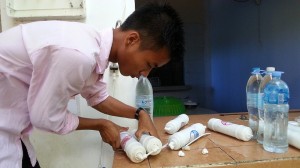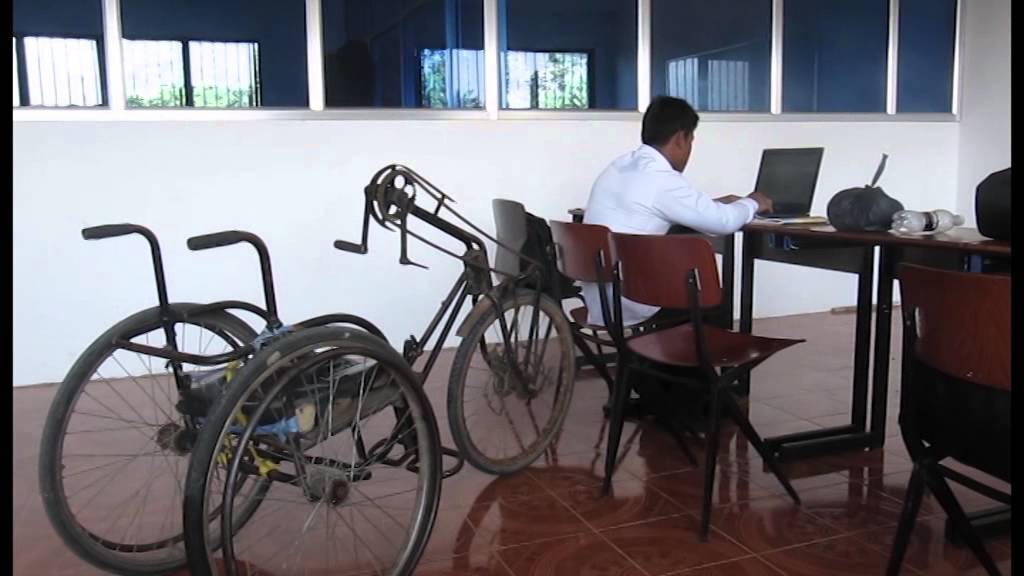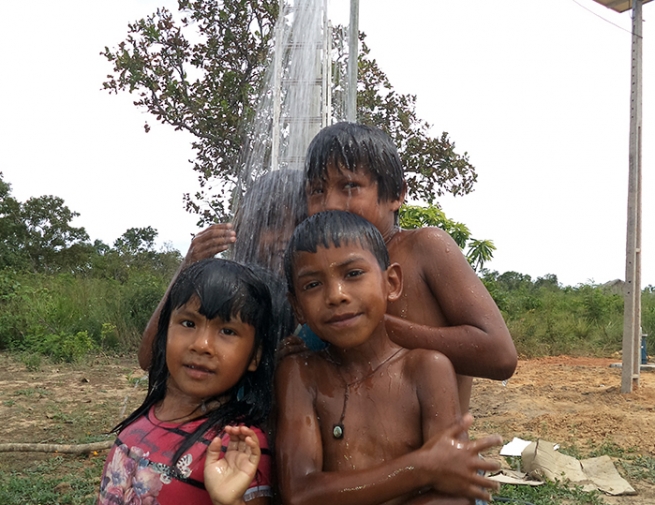CAMBODIA: New Water Project Ensures Safe Drinking Water and Proper Sanitation for Students and Teachers at Don Bosco Kep
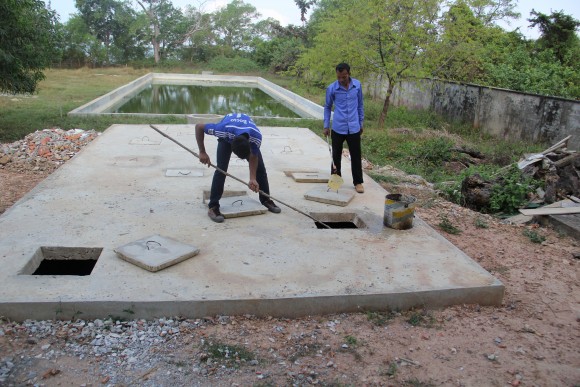
(MissionNewsire) Salesian-run Don Bosco Kep, located in Kep Province, Cambodia, has just completed a water system and sanitation project on the school grounds. The project entailed drilling a new well, installing a water filter, new irrigation, and a water treatment plant in addition to new sanitation facilities. The water project is providing appropriate sanitation and fresh drinking water for 350 students and teachers on campus as well as providing clean water for farming, the fishing ponds and for cooking. The addition of the new water treatment facilities is also preventing ecological contamination.
UN-Water estimates that worldwide 768 million people lack access to improved water sources and 2.5 billion people have no improved sanitation. For those who have no access to clean water, water-related disease is common with more than 840,000 people dying each year from water-related diseases. Women and children often bear the primary responsibility for water collection in the majority of households and globally, spend 140 million hours a day collecting water. Children in these communities are forced to walk for hours to collect drinking water—water that often proves contaminated and seriously sickens those who consume it. Many others are unable to attend school regularly because they must spend time searching for distant wells.
“Having access to clean water brings a sense of dignity to the children and families we serve in our programs,” says Father Mark Hyde, executive director of Salesian Missions, the U.S. development arm of the Salesians of Don Bosco. “Improving water and sanitation facilities also ensures that teachers and students are working and learning in an environment that promotes proper hygiene and allows for safe drinking water, reducing the number of waterborne illnesses that can affect those in our schools keeping them away from important study time.”
Don Bosco Kep provides basic, secondary and technical education to poor youth living in the Cambodian provinces of Kep, Kampot, Takeo, Ratanakiri and Mondolkiri. The organization’s educational and social development programs help students break the cycle of poverty in their lives and become contributing members of their communities. Don Bosco Kep provides special attention to children and young people from ethnic minorities, persons with disabilities, orphans and at-risk youth in danger of becoming victims of human trafficking, labor exploitation or other abuses.
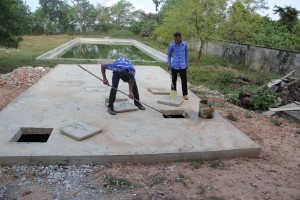
Students clean the water treatment system.
The organization includes the Don Bosco Technical School Kep, a new kindergarten program and the Don Bosco Children Fund which assists poor youth between the ages of six and 15 who are either unable to go to school or have had to drop out due to poverty. Currently the agricultural program at the Don Bosco Technical School Kep is planning the development of a small farm on a newly acquired plot of land to provide hands-on training for its students while producing much needed food.
“Youth living in poverty are among the least likely to have access to educational programs that provide the skills necessary to lead stable, productive lives,” adds Fr. Hyde. “Salesian missionaries in Cambodia are working to ensure that every child, no matter their situation, has access to education.”
With Cambodia’s long history of violence, almost a quarter of Cambodians still live in poverty, according to the World Bank. Many reside in the country’s most rural areas. Rural Cambodians make up about 80 percent of the population and have the most limited access to education, healthcare and other public services.
Today, close to a quarter of Cambodians over the age of 15 are illiterate. Seasonal food shortages leave close to 75 percent of the population without the proper nutrition they need. With very little access to education, poor youth find it especially challenging to break the cycle of poverty.
Learn more about the Salesian Missions Clean Water Initiative.
###
Sources:
UNICEF – Cambodia


